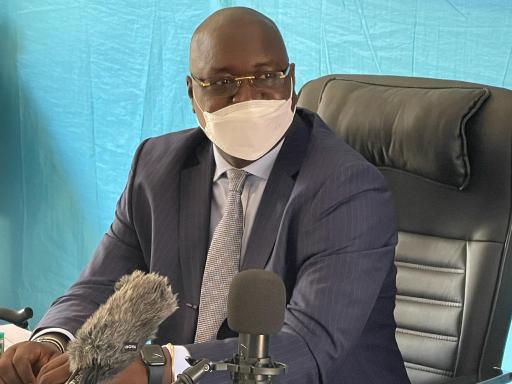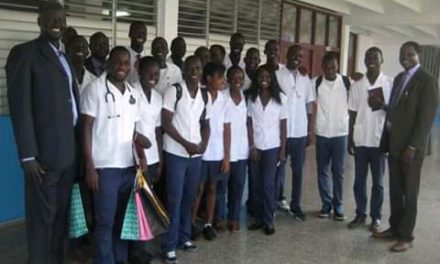
Central Equatoria gov’t powerless as land-grabbers displace hundreds in Juba

Hundreds of residents in Juba’s Gurei neighborhood are homeless after unknown land agents demolished their houses in an ongoing land dispute in Juba.
The residents are asking the Central Equatoria state government to help them receive justice. The Central Equatoria state governor acknowledges there are increased cases of land grabbing and says the matter will be addressed.
Gisma Aloro, a woman whose house was demolished last month, has lived in Juba for 12 years. The state ministry of housing, land and public utilities surveyed and demarcated the area in accordance with proper procedures. Aloro says she was shocked to see unknown people pave the way for demolitions.
“Our names were taken to the ministry of housing and public utilities and right now, we are waiting for them to process the documents for us.”
“the commissioner entered (the area), and started demolishing the houses, opening the roads. We went back to the ministry of housing because we don’t know what is going on, then we got a letter from the Ministry of housing telling them to stop the demolition,” says Aloro.
Demolitions in the area began in January and several landowners sued top Juba county officials who did not show up at the hearings.
John Sabadori Mahmood, a father of nine, is among the more than 500 people whose houses were demolished in Gurei North in late March.
Mahmood has lived in the neighbourhood for 15 years and was stunned to see his home demolished. His family is now homeless. Mahmood lost a child on April 20 and had nowhere to bury.
“When I went to the Payam to request permission to bury my child in my property, they flatly refused. They told me directly in my face that I should not bury my child anywhere near the destroyed plot or property.”
Payam authorities told Mahmood they were following the law without offering him a satisfactory explanation as to why he was denied permission to bury his child on a plot of land he says belongs to him.
Mahmood was then advised by a friend to ask for a plot of land from a neighbor where he could bury his child and later exhume the body once he has regained control of the property.
“I didn’t have any money and couldn’t let the body decay, I buried my child on the riverbank, and the next day it rained, and the tomb was practically drowned.” Mahmood said. He borrowed money from friends to buy a bag of cement to rework the tomb.
Rita Dere is the proprietor of City Dove Academy, a primary school in Gurei. She received a govt notification prior to the demolition of one of her school’s classroom blocks, to make way for a new road passing through the school. Dere believes if the school is demolished, more than 800 students will be stranded.
“I am not happy because we have a lot of children who are studying there and when it’s going to be destroyed, where are our children going to go?”
“If we destroy the school, it means we are destroying the nation because education is the key,” Dere added earnestly.
Dere met with the director of education in the Gurei Boma and was offered a two-month grace period to make arrangements to relocate the school.
The Central Equatoria state minister of Housing, Land, and Public Utilities, Flora Gabriel Loro, says the area was surveyed and demarcated as a third class residential area and that the people behind the demolitions want the area demarcated as a first-class area instead.
“That place (Gurei) is approved by the town planning of the ministry and it was demarcated in 2011. As people who work for the people here in CES, we need the place to be maintained as a third class and the people there have to get it,” Flora said.
Central Equatoria Governor Emmanuel Adil acknowledges that land grabs in the Juba area are on the rise. He says the national government has set up a committee to investigate such cases across the state.
“The main cause of land grabbing includes the population explosion which has increased pressure on the demand for land for settlements and other settlements.”
Mahmood and others whose houses were demolished say they will continue to stand up for their rights until they retain ownership of their plots in Juba’s Gurei neighborhood.



















Recent Comments